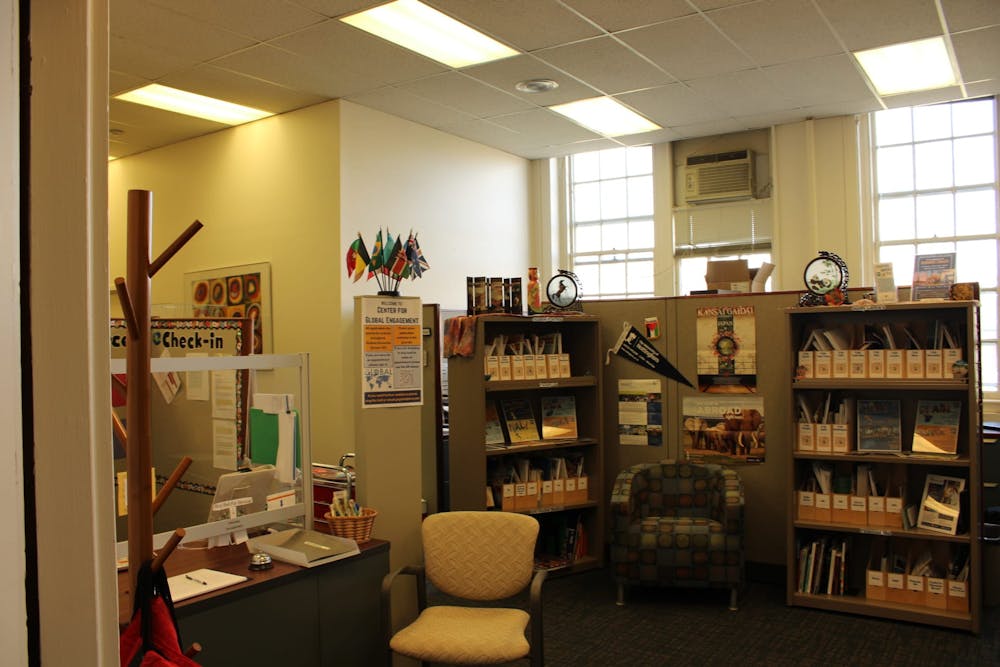By Nicholas Steinhauser
Staff Writer
While the College is mostly home to students from New Jersey, there are also a handful of international students who have been adjusting to both college life and living in a new country.
Whether it’s trying to figure out how things in the U.S. work or connecting with students from a different culture, international students go through unique experiences at the College that can provide insight on how it is entering from an outside nation.
Coming from a different country, international students can be at a disadvantage when it comes to meeting new people. It can be harder for them to connect with American residents because they have very different home environments and cultures.
Being one of few international students often means getting a lot of attention, sometimes unwanted. Some people view international students as different just because they are from another country.
“I got a lot of attention at first, but some people looked at me as a trophy and only found me interesting for my international status,” said Gréta Soós, a senior English/publishing and editing major who lived in Hungary before attending the College, but had traveled to the U.S. regularly prior. “I was treated differently because I’m not from here, and just because I came from somewhere else, I am not like the others.”
She added, “People also educated me on stuff I already knew about America, believing that I didn’t know about the basics in America which isn’t true if they would get to know me well.”
Soós said that being viewed as “different” has sometimes led to positive experiences, however.
“At the same time, many people were actually interested in me being different and wanted to learn about my stories from Hungary,” said Soós. “They treated me like one of them, but my experience depended on the person I talked to.”
Soós said that the culture at the College was more open to different backgrounds than her home county.
“When walking around, you can be whoever you want on campus, but this wasn’t the case in Hungary,” said Soós. “There are some lifestyles that are actively repressed there, so it’s great to see people embracing themselves in America.”
Getting involved on campus, such as by joining clubs and attending big events, is always recommended for building closer connections with students and faculty. This is especially true for international students, who sometimes struggle with breaking the barrier at first due to cultural and societal differences.
Classes can also be a great way for international students to meet new people. Working on group projects with other students and studying for exams together helps them make connections with local students and form strong friend groups.
So while it may be an adjustment at first to understanding the American school system, the new experiences and connections international students make from it are essential for enhancing their college life.
Anushka Pradhan, a sophomore international studies major from Singapore, said that it can be especially difficult for them to learn subjects that pertain directly to the U.S. and were not taught in the countries they grew up in.
“I especially had trouble understanding American history and macroeconomics, which teaches about the American economy,” said Pradhan.
Outside of adjusting to a foreign school, international students also have to adjust to living in the U.S. in general. Depending on where they grew up, they might not speak English as their first language, which can make it even more difficult to adapt to the new way of speaking.
“The lingo was the hardest part for me to understand about America when first coming here,” said Pradhan. “Back in Singapore, we never said phrases like ‘hi, how are you?’ which is a common American way to greet someone. It took some time getting used to this form of communication.”
Another aspect of the U.S. that international students must adapt to is the (often limited) public transportation system of the area.
“Public transportation is huge in Europe, but not in the U.S. It’s very difficult to find public transportation here,” said Soós. “As someone who doesn’t have a license, I find it a struggle to get where I need to be at times.”
With all of these new experiences and challenges, life at the College for an international student will definitely differ from students who have lived in the U.S. for much of their lives. In some respects, it may be frustrating trying to meet new people and adapt to new customs.
However, the experiences that they gain here can be very impactful.
“I actually became more attached to my friends here than at home, and I will genuinely miss them when I finish up my time here at the College,” said Soós.







